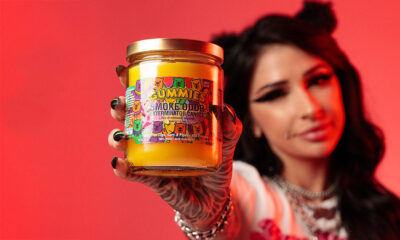
Politics
Cannabis Reparations? D.C. Explores Priority for Black-Owned Businesses
Washington D.C. legislation would give minorities preference in starting cannabis businesses.
Washington, D.C., America’s capital city, is also one of America’s Blackest cities. But advocates for an equitable cannabis market say the same cannot be said for the racial makeup of the growing industry. New legislation could change that by mandating a certain percentage of Black-owned cannabis businesses in historically-Black areas.
A full 49 percent of the district’s citizens are Black. This is a dramatic shift downward from the early 1970s, when Black people accounted for more than 70 percent of D.C.’s residents — and, despite or perhaps because of ongoing gentrification, the newly “integrated” city is still shamefully segregated — but D.C. is still one place in America where white people are not a statistical majority.
But white folk still call most of the shots where money is involved — like in business, which extends to the marijuana business, where the faces of business owners, dispensary operators, cultivators and board members of ancillary firms are, by every estimation made, overwhelmingly white.
In a city where cannabis use is so widespread the smell of reefer is detected at FBI headquarters, but only one of the city’s 13 current marijuana business owners is black, this is a problem — an obvious problem, and one which the free market has proven unwilling or unable to fix.
Meanwhile, as legal cannabis becomes a multibillion-dollar business opportunity, non-white people still account for up to 90 percent of the marijuana-related arrests in America.
D.C. city Councilman Robert C. White Jr. recently put it this way:
“We have locked up so many black people for marijuana, and I see it as incredibly hypocritical for those folks to return from prison on marijuana charges just to come back to a place that has now legalized and industrialized it, and they can’t play any role.”
In the very recent past, pervasive and persistent racial inequality — in schools, at the ballot box, in the workplace — has often only been solved by government mandate or a court order. At other times, fixes have been implemented only at gunpoint.
Whether marijuana will need that level of enforcement to atone for past evils remains to be seen. For now, White and the D.C. City Council are requiring that minority-owned companies be given preference when considered for a permit to sell cannabis within D.C. city limits.
White sees this version of a Voting Rights Act for weed as an “obligation.”
Other governments around the country have tried similar tacks. No place has gone as far as Oakland, California, where half of the marijuana-related business permits to be handed out in the near future are reserved for communities affected most by the War on Drugs.
The courts may yet have to become involved for the green rush to be less white: In Maryland, where exactly zero of the first wave of medical-marijuana business license were granted to Black-owned firms, a judge in May put the state’s long-gestating cannabis program on hold entirely, pending the result of a pending lawsuit.
In D.C., there are eight licensed medical-marijuana cultivation centers and five dispensaries. One of the cultivators is black-owned.
White’s legislation would give specific priority to black-run firms seeking to open a dispensary in D.C.’s southeastern quadrant, on the east side of the Anacostia River, where the neighborhoods are overwhelmingly Black.
If it works, that would be something. It’s not quite having Black-owned marijuana businesses in lily-white Georgetown, but it would be a start. Considering how far along the marijuana industry has come, it’s also long overdue.
TELL US, do you support cannabis reparations?

























